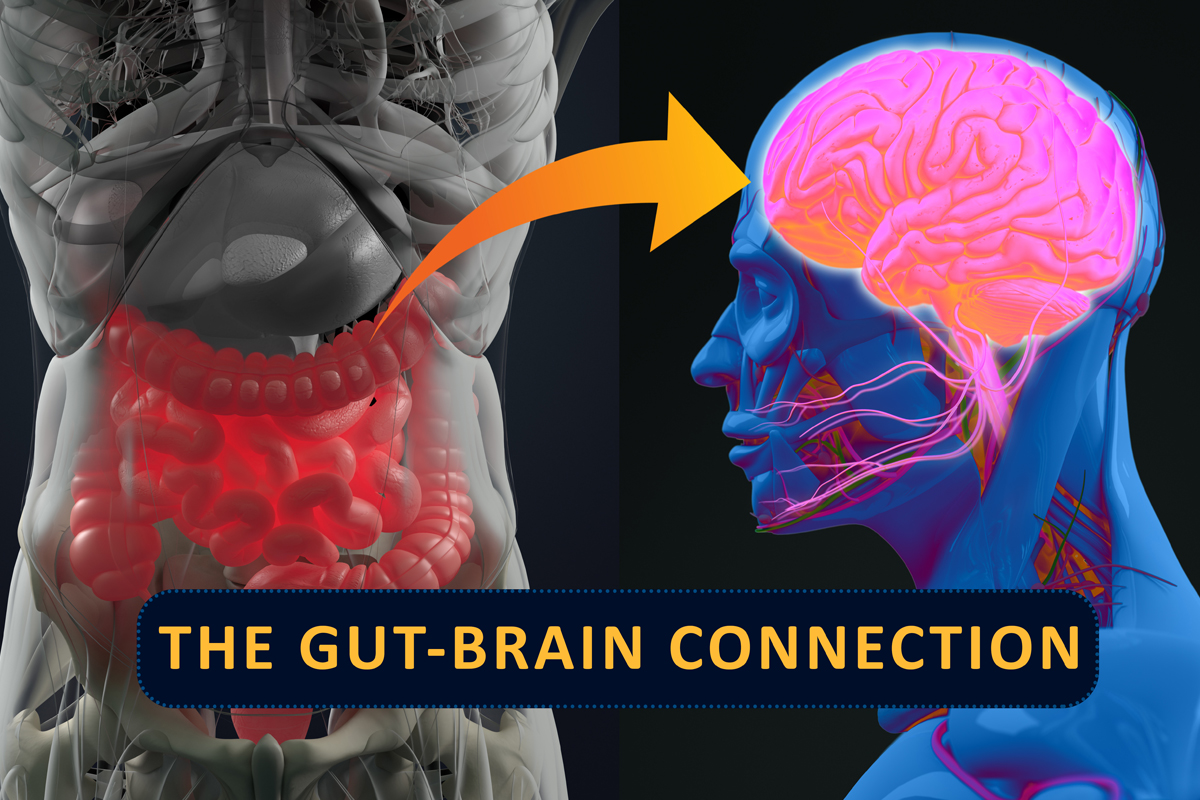The human body is a remarkably intricate system, with numerous connections and relationships that science continues to unravel. One such fascinating connection is the “gut-brain axis,” a complex bidirectional communication network between the gut and the brain. Over the past decade, research in this area has exploded, revealing the profound impact of the gut-brain axis on our mental and physical health. A crucial player in this relationship is the “microbiome,” a diverse community of microbes living in our gastrointestinal tract. In this blog post, we will delve into the gut-brain axis, explore its significance, and understand how it relates to the microbiome.
Understanding the Gut-Brain Axis
The gut-brain axis is an intricate communication network connecting the central nervous system (CNS), which includes the brain and spinal cord, with the enteric nervous system (ENS), also known as the “second brain,” located in the gastrointestinal tract. The ENS comprises millions of neurons and works independently to regulate digestion but also communicates with the CNS via various neural, hormonal, and immunological pathways.
This bi-directional communication between the gut and brain plays a pivotal role in maintaining homeostasis, impacting mood, behavior, cognitive function, and even influencing the immune system. Moreover, the gut-brain axis is intimately linked to the endocrine system, which manages hormone production, and the immune system, emphasizing the far-reaching implications of this connection.
The Microbiome’s Role in the Gut-Brain Axis
The gut is home to trillions of microorganisms, collectively known as the microbiome, which includes bacteria, viruses, fungi, and other microbes. These microbes play a fundamental role in the gut-brain axis, influencing the signaling between the gut and brain.
The microbiome aids in the digestion and absorption of nutrients, produces essential vitamins and neurotransmitters, and acts as a crucial line of defense against harmful pathogens. Moreover, the composition and diversity of the microbiome can influence the integrity of the gut lining, affecting its ability to act as a barrier against toxins and unwanted substances.
Recent studies have shown that certain beneficial gut bacteria produce neurotransmitters such as serotonin and dopamine, which play essential roles in regulating mood and emotions. Furthermore, the microbiome can modulate the immune response and reduce inflammation, both of which can impact brain function and mental health.
The Impact on Mental Health
The gut-brain axis and its relationship with the microbiome have gained significant attention in the field of mental health. Researchers have found correlations between an imbalanced gut microbiome and various mental health conditions, including anxiety, depression, and even neurodegenerative disorders like Alzheimer’s and Parkinson’s disease.
Stress, a well-known factor affecting mental health, also influences the gut-brain axis. When exposed to stress, the gut can undergo changes in its permeability, allowing harmful substances to leak into the bloodstream and potentially affecting brain function. This communication between stress, the gut, and the brain can form a feedback loop, impacting mental well-being.
Nurturing a Healthy Gut-Brain Axis
Maintaining a healthy gut-brain axis is vital for overall well-being. Here are some lifestyle choices that can positively impact this intricate connection:
- Diet: Consume a balanced diet rich in fiber, fruits, and vegetables, promoting the growth of beneficial gut bacteria.
- Probiotics and Prebiotics: Consider incorporating probiotic-rich foods like yogurt and fermented foods into your diet. Prebiotic-rich foods, such as garlic, onions, and bananas, can also support a healthy microbiome by providing nourishment for beneficial bacteria.
- Stress Management: Engage in activities that reduce stress, like meditation, yoga, or spending time in nature.
- Exercise: Regular physical activity has been linked to a more diverse and balanced microbiome.
- Avoid Overuse of Antibiotics: Antibiotics can disrupt the gut microbiome, so use them only when necessary and as prescribed by a healthcare professional.
The gut-brain axis represents a remarkable and intricate relationship between our gastrointestinal system and the brain. The dynamic interplay between the gut and the brain, along with the crucial involvement of the microbiome, has far-reaching implications for our mental and physical health. By understanding and nurturing this connection, we can take proactive steps to enhance our overall well-being and promote a healthier mind and body.
Remember, small lifestyle changes can have a significant impact on the gut-brain axis, so take charge of your health and embark on a journey to support your “second brain” for a happier and healthier life.

